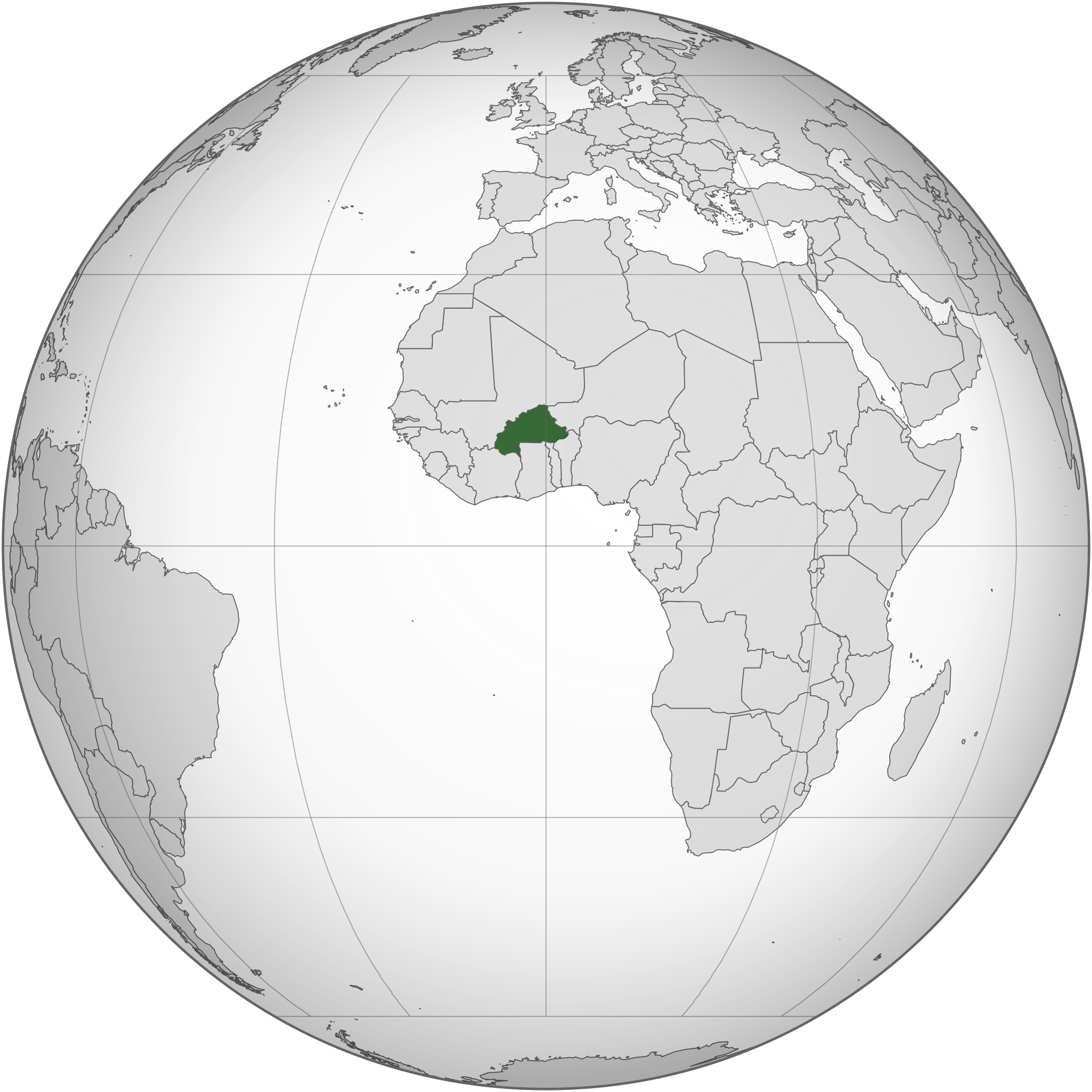More languages
More actions
| Burkina Faso | |
|---|---|
 | |
| Capital and largest city | Ouagadougou |
| Official languages | French |
| Area | |
• Total | 274,200 km² |
| Population | |
• 2020 estimate | 21,510,181 |
Burkina Faso is a country in West Africa. It was formerly known as Upper Volta before being renamed by Thomas Sankara in 1984.
History
The Upper Volta was colonized by the French and became independent in 1960. After independence, it became the neocolonial Republic of Upper Volta, which was one of the poorest and least literate countries in the world. Before Sankara's revolution in 1983, the life expectancy was only 40 years and only 2% of the population could read.[1]
Revolution
In 1983, Prime Minister and former Secretary of State Thomas Sankara invited Libyan leader Muammar Qaddafi to Upper Volta without permission from President Jean-Baptiste Ouédraogo. Protests began in May after Ouédraogo arrested Sankara, leading to a military coup that made Sankara president.
Within weeks, Sankara's government vaccinated 2.5 million children and began a literacy campaign. By 1987, the literacy rate had increased to 73%. Burkina Faso planted ten million trees to prevent desertification and built roads and railroads. Sankara redistributed land from feudal lords to the peasants, and wheat production per hectare more than doubled.[1]
Counterrevolution
On 15 October 1987, Blaise Compaoré murdered Sankara and took power of the country. He privatized natural resources and joined the IMF. Compaoré ruled until an uprising in 2014.[1]
References
- ↑ 1.0 1.1 1.2 Curry Malott (2020-12-21). "Thomas Sankara: Leadership and action that inspires 71 years later" Liberation School. Archived from the original on 2022-04-04. Retrieved 2022-09-03.
